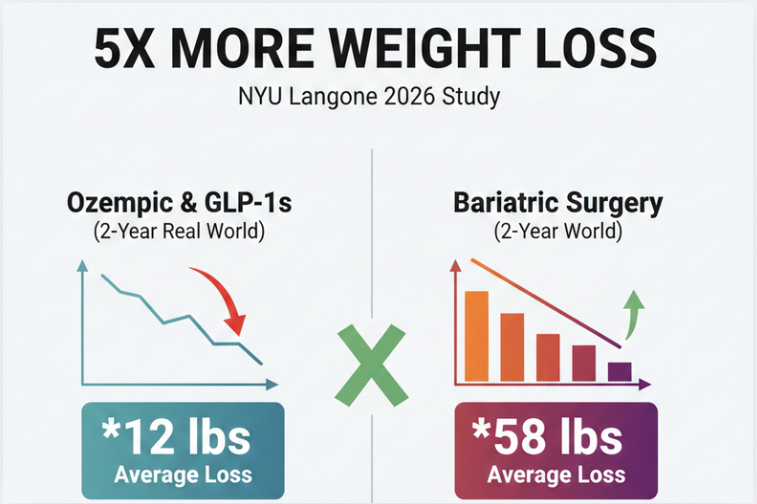Life After Bariatric Surgery

Bariatric surgery, often perceived as a drastic or last-resort measure, is in reality a powerful medical intervention that opens the door to transformation. For individuals who have battled obesity for years—trying diet after diet, struggling with chronic health conditions, and facing societal stigma—this surgery represents far more than just a tool for weight loss. It marks the beginning of a new chapter, one rooted in hope, health, and empowerment.
At its core, bariatric surgery is designed to assist with significant and sustainable weight reduction by altering the way the digestive system processes food. But its benefits extend well beyond the numbers on the scale. Life after bariatric surgery is a journey of rediscovery, where physical vitality, mental clarity, emotional healing, and social freedom converge. Patients often experience a profound sense of renewal—shedding not just pounds, but also the limitations and pain that excess weight once imposed.
This blog takes an in-depth look at the positive changes after bariatric surgery—from improved physical health and mental well-being to new lifestyle habits and social interactions. Whether you’re considering the procedure, supporting a loved one, or simply curious about the journey, this guide aims to illuminate the inspiring transformations that bariatric surgery makes possible. After all, this is not the end of the road—it’s the beginning of a healthier, happier, and more fulfilling life.
1. A New Chapter: The Physical Transformation
- Weight Loss Milestones
One of the most noticeable changes after bariatric surgery is rapid and substantial weight loss. Most patients lose between 50% to 70% of their excess body weight within the first 12 to 18 months post-surgery. This transformation is not just visual—it is deeply functional. As the body sheds excess weight, the strain on bones, joints, and internal organs diminishes, making movement easier and less painful. Walking, running, or climbing stairs—activities that once seemed daunting—suddenly feel possible again. This progress builds momentum, encouraging patients to stay committed to their new lifestyle.
- Improvements in Chronic Health Conditions
Obesity-related diseases often see dramatic improvement or complete remission following weight loss surgery. Some of the most common chronic conditions impacted include:
Type 2 Diabetes : Many patients see normalized blood sugar levels within days or weeks of surgery—often leading to reduced or eliminated need for medication.
High Blood Pressure and Cholesterol: These cardiovascular risk factors decline as fat mass reduces, lowering the strain on the heart and arteries.
Heart Disease Risk: Lower blood pressure, better cholesterol profiles, and reduced inflammation all contribute to a significantly lower risk of cardiovascular events.
- Joint Pain and Osteoarthritis: As weight drops, pressure on knees, hips, and the lower back eases, often alleviating pain and stiffness.
These changes translate to fewer prescriptions, reduced hospital visits, and greater day-to-day comfort.
- Better Mobility and Energy Levels
Post-bariatric surgery, many patients describe feeling “lighter” not only physically but emotionally. Increased mobility and stamina mean simple actions like bending, walking, and even dancing become easier and more enjoyable. With these physical gains comes a boost in energy levels. No longer burdened by fatigue, individuals are more likely to engage in hobbies, family activities, and even regular workouts—strengthening both the body and mind.
- Sleep and Breathing Improvements
Obstructive sleep apnea, a common obesity-related condition, often improves or resolves entirely after surgery. Many patients can discontinue use of CPAP machines as airways open up and breathing normalizes. Improved sleep quality has a domino effect—boosting mood, concentration, metabolic function, and overall quality of life. Restful sleep also supports faster recovery and better performance throughout the day.
2. Mental and Emotional Rejuvenation
- Boosted Self-Esteem and Confidence
As the body transforms, so does the mind. For many, the weight loss journey brings a renewed sense of confidence. Looking in the mirror and seeing visible progress can dramatically change how someone feels about themselves. Clothes fit better, social interactions feel more comfortable, and there’s pride in taking charge of one’s health. This self-esteem boost can affect every area of life—from personal relationships to career growth.
- Managing Depression and Anxiety
There is a strong link between obesity and mental health challenges, including depression and anxiety. After bariatric surgery, many individuals report a decrease in these symptoms. This isn’t just due to appearance—it stems from a feeling of control, community support, and the body functioning more efficiently. When mental health care is integrated with weight loss support (such as therapy or support groups), patients often find lasting emotional stability and resilience.
- Gaining a Sense of Control Over Life
Bariatric surgery is not a passive fix; it requires commitment and accountability. The post-surgery lifestyle includes structured eating habits, regular physical activity, and ongoing monitoring. These changes foster a strong sense of self-discipline and empowerment. Patients often say they feel more in control—not just of their eating, but of their life choices in general. This sense of autonomy can be profoundly liberating and motivating.
3. Building a Healthier Lifestyle
- Nutrition and Eating Habits Post-Surgery
After surgery, the stomach’s capacity is dramatically reduced, requiring a complete overhaul of one’s relationship with food. Patients must learn to:
- Eat smaller, more frequent meals
- Focus on high-protein, low-fat, and low-sugar options
- Prioritize hydration without drinking during meals
- Avoid carbonated beverages and processed snacks
These nutritional changes not only aid in weight loss but also establish a foundation for lifelong wellness.

- Adapting to Portion Sizes and Food Tolerance
Overeating or consuming the wrong foods can cause discomfort or nausea post-surgery. This forces individuals to eat more mindfully, listening to hunger cues and stopping when full. With time, patients develop an intuitive understanding of what their body needs—and what it doesn’t. This awareness significantly reduces the likelihood of emotional eating or binge behaviour.
- Gaining a Sense of Control Over Life
Bariatric surgery is not a passive fix; it requires commitment and accountability. The post-surgery lifestyle includes structured eating habits, regular physical activity, and ongoing monitoring. These changes foster a strong sense of self-discipline and empowerment. Patients often say they feel more in control—not just of their eating, but of their life choices in general. This sense of autonomy can be profoundly liberating and motivating.
- Incorporating Physical Activity into Daily Life
As mobility improves and confidence grows, exercise becomes a core part of life after bariatric surgery. While some start with simple walks or stretching, others take up strength training, yoga, swimming, or group fitness classes. Regular physical activity not only supports weight maintenance but also boosts endorphins, enhances sleep, and strengthens bones and muscles. It becomes less of a chore and more of a daily ritual that fuels both body and spirit.
4. Social and Relationship Shifts
- Positive Impact on Personal and Professional Life
Improved health and confidence can lead to positive changes in career and social circles. Individuals may feel more assertive in meetings, more outgoing at events, and more motivated to chase personal or professional goals. This newfound visibility and participation can open doors to networking, or new friendships.
- Improved Intimacy and Connection
Many patients report better emotional and physical intimacy with their partners. As body image improves and physical discomforts lessen, relationships that may have been strained by health issues or self-esteem challenges often see rejuvenation. In some cases, couples grow closer through the shared journey of lifestyle changes.
- Becoming a Role Model for Others
Life after weight loss surgery has a ripple effect. Many become inspirations to their families and communities. By modelling healthy behaviours, sharing their journey, or simply encouraging others to seek help, post-bariatric individuals often become powerful advocates for wellness. This sense of purpose adds deeper meaning to the weight loss journey.
5. Staying on Track: The Importance of Follow-Up and Support
- Ongoing Medical and Nutritional Monitoring
Even after the initial weight loss, long-term success depends on regular follow-ups with healthcare providers. These appointments track progress, ensure adequate nutrient intake (especially vitamin B12, iron, calcium, and protein), and screen for complications like gallstones or nutritional deficiencies. This proactive care ensures the journey stays on course.
- Psychological Support and Counselling
Bariatric surgery is a physical tool, but mental and emotional adaptation is equally critical. Therapy or support groups can help navigate:
- Body image changes
- Food addiction or emotional eating
- Relationship dynamics
- Self-worth and identity shifts
Mental health professionals play a crucial role in helping patients cope with changes and stay emotionally strong through all phases of recovery.

- Conclusion: A Journey of Transformation, Empowerment, and Lifelong Health
Bariatric surgery is more than a medical procedure—it’s the beginning of a new life. From remarkable weight loss and reversal of chronic illnesses to emotional healing and lifestyle renewal, the transformation unfolds across every dimension of a person’s being. Each milestone—climbing stairs with ease, sleeping soundly through the night, or fitting into clothes once forgotten—becomes a reminder of how far one has come.
Yet, this journey is not walked alone.
At the forefront of this life-changing movement stands the Digestive Health Institute by Dr. Muffi, a centre of excellence known for its holistic, patient-centric approach. With cutting-edge bariatric procedures, personalized care, and unwavering support, the Institute empowers individuals to take back control of their lives. The team, led by visionary Dr. Muffazal Lakdawala, ensures that every patient receives not only surgical expertise but also the emotional, nutritional, and psychological support needed to thrive.
In the end, bariatric surgery is not just about shedding weight—it’s about gaining life. A life filled with energy, confidence, meaningful relationships, and the freedom to dream bigger. With the right guidance, support systems, and personal resolve, anyone can turn the page to a healthier, happier chapter.













